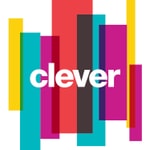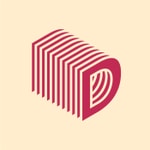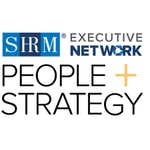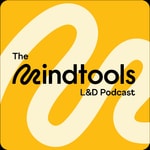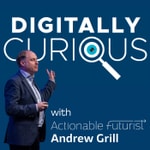WHY DESIGN? – Détails, épisodes et analyse
Détails du podcast
Informations techniques et générales issues du flux RSS du podcast.
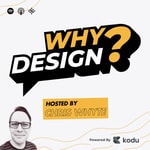
WHY DESIGN?
Chris Whyte | Kodu
Fréquence : 1 épisode/12j. Total Éps: 41

Classements récents
Dernières positions dans les classements Apple Podcasts et Spotify.
Apple Podcasts
🇬🇧 Grande Bretagne - design
01/08/2025#65🇬🇧 Grande Bretagne - design
31/07/2025#59🇬🇧 Grande Bretagne - design
01/06/2025#98🇬🇧 Grande Bretagne - design
31/05/2025#86🇬🇧 Grande Bretagne - design
30/05/2025#73🇬🇧 Grande Bretagne - design
29/05/2025#45🇬🇧 Grande Bretagne - design
15/05/2025#84🇬🇧 Grande Bretagne - design
14/05/2025#66🇬🇧 Grande Bretagne - design
13/05/2025#42🇬🇧 Grande Bretagne - design
03/05/2025#94
Spotify
Aucun classement récent disponible
Liens partagés entre épisodes et podcasts
Liens présents dans les descriptions d'épisodes et autres podcasts les utilisant également.
See all- https://teamkodu.com/
53 partages
- https://teamkodu.com/events
27 partages
- https://www.getsensate.com/
26 partages
Qualité et score du flux RSS
Évaluation technique de la qualité et de la structure du flux RSS.
See allScore global : 69%
Historique des publications
Répartition mensuelle des publications d'épisodes au fil des années.
Announcement! The Design Journeys Podcast is changing in January!
Saison 1 · Épisode 22
jeudi 12 décembre 2024 • Durée 01:21
How a Name Change Became Our Biggest Opportunity Yet
𝐖𝐡𝐚𝐭 𝐝𝐨 𝐲𝐨𝐮 𝐝𝐨 𝐰𝐡𝐞𝐧 𝐬𝐨𝐦𝐞𝐭𝐡𝐢𝐧𝐠 𝐲𝐨𝐮’𝐯𝐞 𝐛𝐮𝐢𝐥𝐭 𝐠𝐞𝐭𝐬 𝐜𝐡𝐚𝐥𝐥𝐞𝐧𝐠𝐞𝐝?
It's Chris Whyte here, founder of Kodu and host of The Design Journeys Podcast. I wanted to share an important announcement.
After nine months of sharing stories from the world of physical product development, The Design Journeys Podcast is evolving.
Starting in January, we’ll be rebranding as 𝐖𝐡𝐲 𝐃𝐞𝐬𝐢𝐠𝐧?
𝐖𝐡𝐲 𝐭𝐡𝐞 𝐜𝐡𝐚𝐧𝐠𝐞?
A few weeks ago, the host of Design Journeys, a French-language podcast about digital product design, reached out.
They’d noticed some listener confusion between our two shows and politely asked if we’d consider renaming.
I’ll be honest—hearing that hit hard. Seeing something you’ve built get challenged isn’t easy. But after stepping back, I realised that if the roles were reversed, I’d want to protect my brand too.
So, after a bit of sulking... I saw this for what it really is: 𝐚 𝐡𝐮𝐠𝐞 𝐨𝐩𝐩𝐨𝐫𝐭𝐮𝐧𝐢𝐭𝐲.
The podcast has grown into something far bigger than I ever imagined—a community of passionate guests and listeners exploring the complexities of physical product development. It’s no longer just about stories—it’s a space where ideas spark, connections form, and learning never stops.
And we’re just getting started.
𝐖𝐡𝐚𝐭’𝐬 𝐜𝐨𝐦𝐢𝐧𝐠 𝐢𝐧 𝟐𝟎𝟐𝟓:
✅ Online huddles
✅ UK & US meetups
✅ Workshops & webinars
All built around one big question: 𝐖𝐡𝐲 𝐃𝐞𝐬𝐢𝐠𝐧?
Thank you so much to our guests this year and for all of you who have tuned in!
📢 𝐒𝐭𝐚𝐲 𝐢𝐧 𝐭𝐡𝐞 𝐥𝐨𝐨𝐩!
Sign up at teamkodu.com/events to stay up to date with new podcast episodes, events, workshops, and meetups. We’d love to have you with us on this journey. 🚀
From LEGO to Quarterre: Nick Mannion’s Journey Through Product, Place, and Play
Saison 1 · Épisode 21
mercredi 4 décembre 2024 • Durée 01:00:25
Register your interest in our community events here: www.teamkodu.com/events
In this final episode of The Design Journeys Podcast under its current name, Chris Whyte speaks with Nick Mannion, co-founder and director of Quarterre Studio. Nick’s career journey has been shaped by a love of drawing, storytelling, and exploration, leading him from a degree in Transport Design at Coventry University to an expansive career working with global brands like LEGO, Polestar, Mercedes, and IKEA.
Nick shares stories from his early career at LEGO, where he contributed to iconic projects such as Bionicle and Legoland attractions. He reflects on his global experiences working in California, Tokyo, and Sydney, and the cultural and creative insights gained along the way. The episode delves into Quarterre Studio's evolution from a product-focused business to a consultancy specializing in “product, place, and play,” creating emotionally driven, user-centered designs for some of the world’s most recognized brands.
Key Takeaways:- The Value of Play in Design: Nick emphasizes how play, both as a mindset and a process, shapes innovative and engaging designs.
- Global Perspectives: Working in diverse locations like California, Tokyo, and Sydney has informed Nick’s approach to storytelling and product development.
- Quarterre’s Evolution: From bike storage solutions to consultancy, the studio’s journey reflects the importance of adaptability and focus.
- Storytelling as a Design Tool: Nick shares how crafting narratives enhances both the creative process and the final product’s emotional connection with users.
- The Power of Community: Collaboration and curiosity are essential for personal growth and professional success, as highlighted by Nick’s experiences and advice.
Links:
Connect with Nick Mannion on LinkedIn: https://www.linkedin.com/in/nick-mannion-17182964/
Learn more about Quarterre Studio: https://quarterre.com/
Connect with Chris Whyte on LinkedIn: https://www.linkedin.com/in/mrchriswhyte/
Stay in the loop for future events: www.teamkodu.com/events
From Kohler to Blendjet: William Gordon's Design Journey
Saison 1 · Épisode 12
mercredi 4 septembre 2024 • Durée 01:02:06
Episode 12 of The Design Journeys Podcast hosted by Chris Whyte. New episodes every other Wednesday!
In this episode of the Design Journeys podcast, host Chris Whyte interviews William Gordon, Vice President of Design at Blendjet. They discuss William's journey in industrial design, his time at Kohler and SC Johnson, and the importance of building relationships in the design industry.
William emphasizes the value of connections and maintaining a network, even during challenging times. He also highlights the role of storytelling in design and the impact of design on facilitating positive relationships between people.
In this conversation, William Gordon discusses the challenges of working with egotistical bosses and the importance of creating a positive work environment. He shares his experiences working at S.C. Johnson Wax and CamelBak, highlighting the diverse range of products and industries he has been involved in.
Gordon emphasizes the significance of understanding the design process and its impact on people, business, and society. He also shares a humorous design story involving Herb Kohler, the CEO of Kohler, testing a toilet seat.
Takeaways
- Building and maintaining relationships is crucial in the design industry
- Don't turn down opportunities, even if they may not align with your ideal projects
- Your network can lead to future opportunities and collaborations
- Design is about storytelling and facilitating positive relationships between people
- Listening and asking questions are key skills in building connections
- Don't sacrifice relationships for projects Working with egotistical bosses can be challenging and detrimental to the work environment.
- Creating a positive work environment is crucial for productivity and employee satisfaction.
- Gaining experience in different industries and product categories can broaden one's design skills and perspective.
- Understanding the design process and its impact on people, business, and society is essential for successful design.
- Design is about consequences and making a positive impact on users, stakeholders, and the environment.
- Humor and storytelling play a role in design, fostering engagement and connection with users.
- LinkedIn is a great platform for networking and connecting with professionals in the design industry.
Connect with William Gordon on LinkedIn: https://www.linkedin.com/in/william-gordon-a6522b1/
Connect with Chris Whyte on LinkedIn: https://www.linkedin.com/in/mrchriswhyte/
Learn more about Kodu Recruitment: https://teamkodu.com/
Tim Sharpe on how design can be a strategic advantage for non-design companies.
Saison 1 · Épisode 11
mercredi 21 août 2024 • Durée 58:41
Episode 11 of The Design Journeys Podcast hosted by Chris Whyte. New episodes every other Wednesday!
In this episode of the Design Journeys podcast, host Chris Whyte interviews Tim Sharpe, co-founder of Better Normal, a consultancy focused on helping non-designers adopt a designer's mindset.
Tim shares his career journey, which includes working in various countries and industries, such as consumer electronics, e-bikes, and medical devices. He emphasizes the importance of international experience in shaping his success.
Tim also discusses how design can become a strategic advantage for non-design companies and shares insights on reframing problems, involving end-users, and staying curious.
In this conversation, Tim and Chris discuss the importance of networking and building connections in the design industry. They emphasize the value of being curious, asking questions, and having broad interests.
Tim shares his experience working on a project to develop equipment for cancer treatment and highlights the importance of teamwork and making choices that contribute to the greater good.
They also discuss tips for creating effective CVs and portfolios, including showcasing problem-solving skills through sketches.
Tim recommends the books 'Loonshots' and 'Ruined by Design' as valuable resources for designers.
Takeaways
- International experience can greatly contribute to career success in the design industry.
- Design can be a strategic advantage for non-design companies.
- Reframing problems and involving end-users are essential in finding effective solutions.
- Curiosity and asking questions are key traits for designers. Networking and building connections is crucial in the design industry. Be curious, ask questions, and show genuine interest in others.
- Having broad interests and diverse experiences can lead to more meaningful connections and collaborations.
- Teamwork is essential in design projects. Embrace diversity and different skill sets to create innovative solutions.
- Make choices that contribute to the greater good and have a positive impact on the world.
- When creating CVs and portfolios, focus on quality over quantity. Showcase problem-solving skills and thought processes through sketches.
- Recommended books for designers: 'Loonshots' and 'Ruined by Design'.
Connect with Tim Sharpe on LinkedIn: https://www.linkedin.com/in/sharpetim/
Connect with Chris Whyte on LinkedIn: https://www.linkedin.com/in/mrchriswhyte/
Learn more about Kodu Recruitment: https://teamkodu.com/
Emily Moyer on Embracing AI and The Importance of Relationship Building and Networking for Industrial Designers
Saison 1 · Épisode 10
mercredi 7 août 2024 • Durée 56:23
Episode 10 of the Design Journeys Podcast hosted by Chris Whyte. New episodes every other Wednesday!
In this episode, host Chris Whyte interviews Emily Moyer, an independent industrial design strategy and innovation consultant.
Emily has worked with big brands like L'Oreal and Nestle, as well as startups like Aura Home and Bark & Co.
She shares her career journey and highlights the importance of user experience and problem-solving in design.
Emily also discusses the trends she's seeing in the industry, including advancements in design tools and AI.
In this conversation, Chris and Emily discuss the importance of understanding the limitations of design tools like GPT and Mid-Journey. They compare it to the process of designing in industrial design, where it's crucial to flesh out concepts before diving into 3D modeling. They also talk about the elements of a strong industrial design portfolio, including versatility and sketching.
Emily shares a success story of a prescription bottle design that won an award and a failure story of a wearable keyboard that didn't meet consumer expectations.
They discuss the challenges of business development for independent consultants and the effectiveness of personal posts on LinkedIn.
Emily recommends the book 'I Love It, What Is It?' by Turner Duckworth and the podcast 'Design Theory' by John Murielo.
She also mentions Hector Rodriguez and Jonathan Tai as valuable resources in the design industry.
Emily can be reached on LinkedIn or through her website, EmilyMoyer.com.
Takeaways
- Industrial design involves creating physical consumer products that people use every day.
- User experience and problem-solving are at the core of industrial design.
- Advancements in design tools and AI are shaping the industry.
- Collaboration and in-person meetings are still valuable in the design process.
- Building relationships and networking are important for career growth in design. Understand the limitations of design tools like GPT and Mid-Journey and know how to get the best out of them.
- Flesh out concepts before diving into 3D modeling in industrial design.
- A strong industrial design portfolio should showcase versatility and include sketching.
- Success story: A prescription bottle design won an award for design of the decade.
- Failure story: A wearable keyboard didn't meet consumer expectations.
- Business development can be a challenge for independent consultants, but consistency and personal posts on LinkedIn can help.
- Recommended resources: 'I Love It, What Is It?' by Turner Duckworth and the 'Design Theory' podcast by John Murielo.
- Connect with Emily on LinkedIn or through her website, EmilyMoyer.com.
Connect with Emily Moyer on LinkedIn: https://www.linkedin.com/in/emily-moyer-1b49973/
Connect with Chris Whyte on LinkedIn: https://www.linkedin.com/in/mrchriswhyte/
Learn more about Kodu Recruitment: https://teamkodu.com/
From Engineer to CEO: Ashley Sayed's Journey in Product Development Improving Supply Chains with SupliChainPro
Saison 1 · Épisode 9
mercredi 24 juillet 2024 • Durée 01:07:01
Episode 9 of the Design Journeys Podcast hosted by Chris Whyte. New episodes every other Wednesday!
Ashley Sayed, CEO of Supply Chain Pro, shares his career journey in product development, from working at Sendo and Motorola to joining TomTom.
He discusses the transition from engineer to strategic roles and the importance of connecting design and product development with manufacturing.
Ashley also provides advice for young entrepreneurs, emphasizing the need to solve a real problem, have passion, and consider scalability. He highlights the benefits of joining an incubator or accelerator to gain experience and support.
Ashley's experience in high-volume manufacturing and design for manufacture has shaped his expertise in supply chain management. Ashley Sayed discusses his experience in scaling up technology and creating a roadmap of products.
He emphasizes the importance of bringing in engineering and understanding the technical aspects of design. He shares the success and challenges he faced during his time at TomTom and Philips.
Ashley also talks about his current venture, Supply Chain Pro, which focuses on helping companies set up and improve their supply chains. He highlights the importance of prioritizing health, family, and career and shares insights on hiring and standing out in the job market.
Takeaways
- Ashley's career in product development spans over 25 years, working with companies like Sendo, Motorola, and TomTom.
- He emphasizes the importance of connecting design and product development with manufacturing and supply chain management.
- Ashley advises young entrepreneurs to solve a real problem, have passion, and consider scalability when pursuing an idea.
- Joining an incubator or accelerator can provide valuable experience and support for startups. Bringing in engineering and understanding the technical aspects of design is crucial for scaling up technology and creating a roadmap of products.
- Prioritizing health, family, and career is important for maintaining a balanced life.
- Supply Chain Pro helps companies set up and improve their supply chains, considering both technical and business KPIs.
- To stand out in the job market, candidates can showcase their passion and motivation, demonstrate their problem-solving skills, and provide unique insights or projects related to the company they are applying to.
- Hiring is a critical process, and it is important to evaluate technical skills, communication abilities, and how candidates handle stress.
- Forming good habits and continuously learning are key to personal and professional growth.
Chapters
00:00 The Journey of a Product Development Expert
03:53 The Impact of Psychology on Design Decisions
10:01 Challenges and Opportunities in Scaling Up Technology
17:05 Valuable Advice for Young Entrepreneurs
28:55 The Journey from Industrial Design to Software Engineering
33:12 Balancing Career, Family, and Health
50:56 Insights on Hiring and Standing Out in the Job Market
01:06:08 Insights on Physical Product Development and Recruitment
Ashley's recommended book:
Atomic Habits by James Clear: https://amzn.eu/d/06iloxge
Connect with Ashley Sayed on LinkedIn:
Tim Morton on The Importance of Constraints in Physical Product Design
Saison 1 · Épisode 8
mercredi 10 juillet 2024 • Durée 54:32
Episode 8 of the Design Journeys Podcast hosted by Chris Whyte. New episodes every other Wednesday!
In this episode of the Design Journeys podcast, host Chris
Whyte interviews Tim Morton, Director for Global Design North America for Husqvarna. They discuss Tim's career journey, starting with his studies in industrial design at the University of Wales and his time at Lego.
Tim shares his experiences working at Lego, including the
importance of collaboration, understanding the brand, and designing for children. He also talks about his transition to consulting and his work with PDT, where he worked on projects for clients such as Dell, Corning, and
Qualcomm.
The conversation explores the broad field of consultancy and design, highlighting the importance of understanding the needs and goals of people and designing products to meet those needs. It emphasizes the role of human connection in design and the value of innovation and creativity.
The conversation also touches on the challenges of
leadership, the impact of design on business, and the need to quantify the value of design.
The guest shares his experiences and failures in the design
industry and emphasizes the importance of learning from failures.
The conversation concludes with a discussion on favorite
podcasts and books, and the guest's contact information.
Takeaways
- Tim's journey into industrial design started with his curiosity and desire to create and make things.
- Experience outside of design, such as teaching and working in telemarketing, can provide valuable skills and perspectives.
- Designers need constraints to solve problems and create innovative solutions.
- Understanding the brand and designing for the target audience are crucial in product design.
- Flexibility and the ability to apply problem-solving skills to different industries are valuable traits for designers. Consultancy is a broad field with various specializations, including engineering-led, design-led, innovation-led, and research-led consultancies.
- Understanding the needs and goals of people is crucial in design, and products should be designed to meet those needs.
- Innovation and creativity play a significant role in design, and companies that invest in design and understanding their customers tend to perform better.
- Leadership in design requires the ability to connect with people, inspire them, and quantify the value of design.
- Failures are an essential part of the design process, and learning from failures is crucial for growth and improvement.
- Favorite podcasts and books mentioned in the conversation include 'How I Built This' and 'Remember' by Lisa Genova and 'The Silo Effect' by Gillian Tett.
Chapters
00:00 Introduction and Background
03:20 University of Wales and Discovering Industrial Design
06:18 Starting at LEGO and the Importance of Persistence
13:03 Favorite Memories at LEGO and the Value of
Collaboration
23:36 Working on Diverse Projects at PDT
25:23 Design, Innovation, and Creativity in Connecting
People, Technology, and Business
28:39 Design as a Business: Lessons from Working at PDT
33:13 Challenges and Opportunities in the Outdoor Power
Equipment Industry
35:15 Learning from Failure: Lessons from a Smartwatch
Project at LEGO
45:26 Embracing Change and Inspiring Others: The Power of
Human Connection in Design
53:43 Insights on Physical Product Development...
Adrian Berry on the Challenges and Lessons in Business Development for Design Consultancies
Saison 1 · Épisode 7
mercredi 26 juin 2024 • Durée 01:04:57
Episode 7 of the Design Journeys Podcast hosted by Chris Whyte. New episodes every other Wednesday!
In this episode of the Design Journeys podcast, Chris Whyte interviews Adrian Berry, co-founder of Factory Design.
They discuss Adrian's design journey, starting from his studies in engineering product design at London South Bank University to his time at Pentagram and Seymour Powell.
Adrian shares the challenges and lessons he learned in business development for design consultancies. They also talk about the importance of placement years, building relationships, and networking in the industry.
In this conversation, Adrian Berry, co-founder of Factory Design, shares his experiences and insights on starting and running a design consultancy. He discusses the early days of Factory Design, the challenges they faced, and the importance of building relationships and rapport with clients.
Adrian also emphasizes the value of being part of a design community and the benefits of working in a studio environment.
He shares his pet peeve of remote work and highlights the importance of in-person interactions for collaboration and creativity.
Adrian recommends the podcast '13 Minutes to the Moon' and the book 'The Modern Middle East' by Jeremy Bowen.
Takeaways
- Adrian Berry studied engineering product design at London South Bank University and started his career at Pentagram before co-founding Factory Design.
- Placement years are valuable for gaining practical experience and building relationships in the industry.
- Business development for design consultancies involves networking, building a strong reputation, and delivering high-quality work.
- Building relationships and maintaining a good rapport with clients is crucial for long-term success in the design industry. Building relationships and rapport with clients is crucial for success in a design consultancy.
- Being part of a design community and working in a studio environment fosters collaboration and creativity.
- In-person interactions are important for building relationships and maintaining a supportive team dynamic.
- Remote work can hinder collaboration and the organic exchange of ideas.
- The podcast '13 Minutes to the Moon' and the book 'The Modern Middle East' are recommended.
Chapters
00:00 Introduction
06:00 The Value of Placement Years
09:37 Building Relationships and Networking
13:17 Lessons Learned at Pentagram
14:42 The Importance of In-Person Collaboration and Communication
15:38 Working on Diverse Projects
21:13 The Challenges of Business Development
25:03 Starting Factory Design
29:02 Surviving the Early Days
29:31 Advice for Young Designers Starting Their Careers
31:25 Overcoming Challenges and Achieving Success
37:45 Showcasing Process and Building Relationships in Job Applications
49:35 Podcast and Book Recommendations
58:34 Closing Remarks
01:04:02 Insights on Physical Product Development and Recruitment
Adrian's recommended podcast and book:
13 minutes to the Moon Podcast: https://www.bbc.co.uk/programmes/w13xttx2/episodes/downloads
The Modern Middle East:
Lea Stewart on Fulfillment and Growth in Your Work and Learning from Design Horror Stories
Saison 1 · Épisode 6
mercredi 12 juin 2024 • Durée 54:59
Episode 6 of the Design Journeys Podcast hosted by Chris Whyte. New episodes every other Wednesday!
On this episode we're joined by Lea Stewart.
Lea Stewart, senior manager for baby and parenting products at Newell Brands, shares her career journey and insights in this episode. She discusses how she chose to study industrial design and the challenges she faced in finding job opportunities. Lea emphasizes the importance of not overlooking creative opportunities and finding value in every job, regardless of the company's reputation. She also highlights the significance of building connections and learning from experienced professionals. Lea's story reminds us that success in design is not defined by working for well-known companies, but by finding fulfillment and growth in our work. Lea Stewart discusses the importance of finding a job that enables the rest of your life and brings you joy. She emphasizes the need to consider factors beyond just the work itself, such as work-life balance and the people you work with. Lea also shares insights on dressing for interviews, highlighting the importance of reading the room and being comfortable while still dressing appropriately. She provides an overview of her company's hiring process, which includes initial camera-off interviews to assess character and portfolio reviews in later rounds. Lea emphasizes the importance of understanding and communicating your impact in design careers, as well as the satisfaction of positively influencing and developing others. She also shares a personal design horror story where a lack of stakeholder alignment led to a failed presentation. Lea recommends the book series 'The 12 Tomorrows' and podcasts like Radio Lab, This American Life, and Freakonomics for thought-provoking content. She also mentions the Women in Design Deep Dive event happening in June.
Takeaways
- Don't overlook creative opportunities and consider the value they can bring to your career.
- Success in design is not solely defined by working for well-known companies.
- Build connections and learn from experienced professionals to enhance your skills and knowledge.
- Find fulfillment and growth in your work, regardless of the company's reputation. When job hunting, consider how the job will enable the rest of your life and bring you joy beyond just the work itself.
- Take into account factors like work-life balance and the people you will be working with when evaluating job opportunities.
- When dressing for interviews, read the room and dress appropriately while still being comfortable.
- In the hiring process, it is important to assess character through camera-off interviews and evaluate portfolios in later rounds.
- Understanding and communicating your impact is crucial in design careers, and positively influencing and developing others is a measure of success.
- Be prepared for unexpected challenges and failures in design, and learn from them to improve future outcomes.
- Recommended books: 'The 12 Tomorrows' series. Recommended podcasts: Radio Lab, This American Life, Freakonomics.
- The Women in Design Deep Dive event will take place in June and will provide valuable insights and networking opportunities.
More info on the Women in Design Deep Dive Event in Philadelphia on 25th June 2024: https://www.idsa.org/conference-details/women-in-design-deep-dive-2024/
Lea's recommended reads: The Twelve Tomorrows Series:
Improving Medical Devices for Home Use: Dr. Kristi Bartlett's Research - The Power of User Insights in Design and Innovation
Saison 1 · Épisode 5
mercredi 29 mai 2024 • Durée 48:35
Episode 5 of the Design Journeys Podcast hosted by Chris Whyte. New episodes every other Wednesday!
On this episode we're joined by Dr. Kristi Bartlett.
Summary
Dr. Kristi Bartlett, Assistant Professor at the University of Kentucky College of Design and Director of Product Development at Zibrio, discusses her career journey in medical device design and her passion for equality and gender bias in design. She shares her experience transitioning from civil engineering to industrial design and her research on improving medical devices for home use. Dr. Bartlett also talks about Zibrio's balance assessment technology and the importance of user-centered design. In her role as a professor, she focuses on helping students find their personal motivation and develop their design skills. The conversation explores the challenges women face in engineering and design industries, including gender bias in job descriptions and the lack of representation. It highlights the importance of creating a more inclusive and appealing environment for women in these fields. The discussion also touches on the value of user insights in the design process and the ability to update connected devices to meet user needs. The conversation concludes with a mention of the Women in Industrial Design Group and the need for support and mentorship in the design community.
Keywords
design, engineering, medical devices, equality, gender bias, industrial design, user-centered design, women in engineering, gender bias, job descriptions, inclusivity, user insights, connected devices, design process, Women in Industrial Design Group, support, mentorship
Takeaways
- Dr. Kristi Bartlett transitioned from civil engineering to industrial design after realizing the need for better-designed medical devices for home use.
- She conducted research on improving feeding tube equipment for children and found that prototypes she designed were more effective than existing equipment.
- Dr. Bartlett is passionate about equality and gender bias in design, particularly in the field of medical device design.
- She emphasizes the importance of user-centered design and helping students find their personal motivation in their design work.
- Zibrio, where Dr. Bartlett works as Director of Product Development, has developed a balance assessment technology that can predict fall risk in individuals. Women are often deterred from applying for engineering and design roles if they don't meet all the requirements, while men are more likely to take the risk and apply.
- Job descriptions should use gender-neutral language to attract a more diverse pool of applicants.
- User insights are crucial in the design process, and the ability to update connected devices allows for continuous improvement based on user feedback.
- The Women in Industrial Design Group provides a supportive network for women in the design industry and offers opportunities for mentorship and career development.
Chapters
- 00:00 Introduction and Background
- 01:51 Choosing Civil Engineering
- 06:56 Joining Zebrio
- 08:45 Researching User Needs
- 11:31 Joining University of Kentucky
- 19:36 Themes in Design
- 21:15 The Role of AI in Design
- 24:20 Equality in Design
- 26:40 Gender Balance in Engineering
- 27:37 Creating a Balanced Culture
- 27:56 Gender Bias in Engineering
- 32:58 Design Process and User Insights
- 36:42 Social Media and Influencers
- 41:48 Women in Industrial Design Network
- 45:29 Shoutouts and Closing Remarks
- 47:42 Insights on Physical Product Development and
